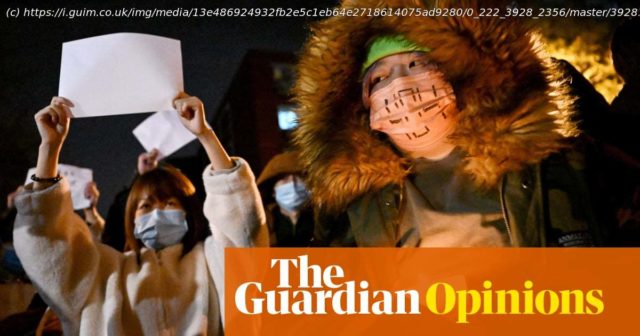Array
On Thursday 24 November, a fire broke out on the 15th floor of an apartment block in Urumqi, capital of the western Chinese province of Xinjiang. At least 10 people died, all from the minority Uyghur community. Outrage grew at the fact that the deaths were entirely avoidable, caused by China’s draconian Covid lockdown policy. Some of the victims were sealed in their flats; the building’s fire exits were locked; fire engines were delayed by Covid barriers. Demonstrations and vigils in response soon spread across the country.
Ten days later, after initially denying the tragedy had anything to do with its Covid policies and seeking to suppress all news of the protests, the seemingly immovable Chinese Communist party cracked. President Xi Jingping acknowledged the protesters and began to moderate China’s lockdown policies. So why did the deaths of 10 Uyghurs generate such a powerful reaction? What do these 10 days that shook the party tell us about the nature of protest and of Chinese society?
First, it is important to acknowledge that the initial reaction of the Chinese state – deny and suppress – is not unique to China or to authoritarian regimes more generally. When faced with social disorder, most governments respond typically by blaming the protesters, claiming either that they have either gone mad in a mob, are bad people, or else (in a hybrid version) that bad agitators manipulate the mad mob in order to create mayhem.
We saw this narrative play out in the UK, in 2011, when David Cameron referred to the riots that started in Tottenham, north London, after the shooting of Mark Duggan, as “criminality pure and simple”. As in China, this condemnation was a distraction from the social roots of unrest, both the broader context of injustice and grievance and the immediate reactions of the authorities.
Riots are often dismissed as mere outbursts of anger and frustration. At the start of the pandemic, there were fears that people would riot against British lockdown measures. But people don’t riot simply because they face hard times.
Домой
United States
USA — China China’s Covid policy didn’t have to end in riot and protest. This...






